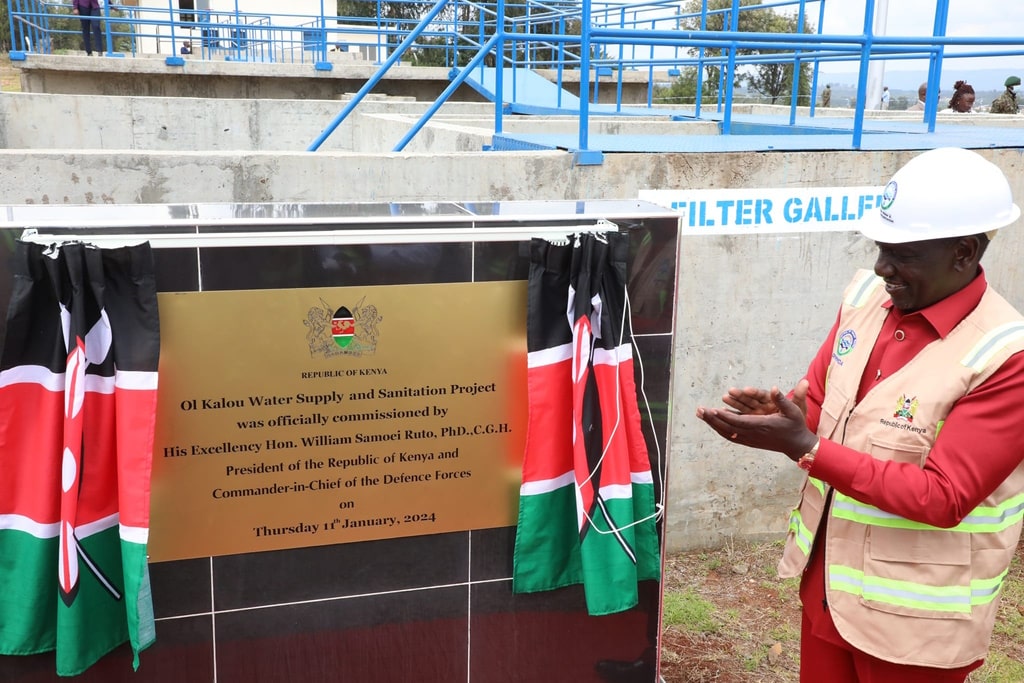Olkalou, a town in Nyandarua County, and the surrounding towns now have a sewage system. The network was inaugurated on 11 January 2024 by the President of the Republic of Kenya, William Samoei Ruto, some four years after work began in 2020. The Central Rift Valley Water Works Development Agency (CRVWWDA), the implementing agency for the sewerage project, awarded the contract to build the sewerage infrastructure to Sinohydro Corporation and Engineering of China.
In accordance with its specifications, the Beijing-based company built a wastewater treatment plant with a capacity of 3,300 m3 per day, including inlet works, aerobic ponds, facultative ponds, maturation ponds, sludge lagoons and site works, and laid 38 km of secondary and tertiary sewers.
AfDB financing
The sewerage system, which is the first to be built in Olkalou according to the Kenyan authorities, is expected to serve a population of 68,800 by 2040. “Once completed, it will be the biggest development project in Nyandarua, as it should put an end to the nightmare of sewage disposal in the town of OlKalou and the surrounding area. It should also attract investors to this agriculturally rich county”, says the CRVWWDA.
In the town of Olkalou, Sinohydro has also built a drinking water station with a capacity of 2,000 m³ per day, as well as a 10 km water supply network. At the various project sites, the Chinese company, which specialises in hydraulic and hydroelectric engineering, benefited from the support of the local workforce, which numbered just over 115 people per day, with over 80% of them young people. Sinohydro also benefited from the consultancy services of Scet-Tunisie, one of Africa’s leading engineering firms, Gath Consulting Engineer, and Losai JV University of Nairobi.
Read Also – KENYA: Iten town to get sewerage system
The Olkalou project, which is nearing completion, cost almost 600 million Kenyan shillings (900,000 euros). This funding was deducted from the loan granted by the African Development Bank (AfDB) to implement the Kenya Sustainable Urban Water Supply and Sanitation Programme (KSTWSSP), which is currently underway. The overall objective of this programme is to contribute to a better quality of life for the people of this East African country, and to reduce poverty levels through the provision of water and sanitation services on a sustainable basis.
Inès Magoum
